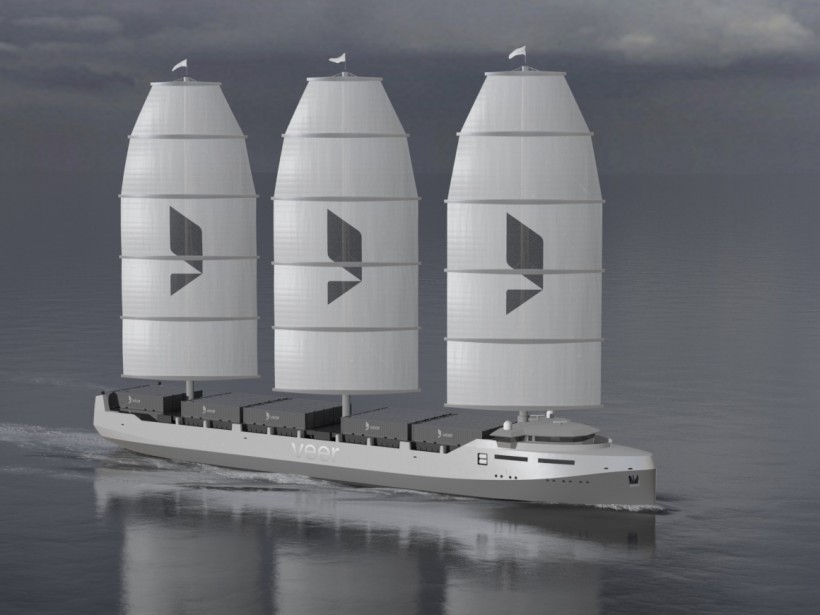Lunenburg, N.S.-based Veer Group has chosen a shipbuilder to construct the first two of its 100-metre hydrogen- and sail-powered container vessels: Fosen Shipyard of Stralsund, Germany.
The companies announced they had signed a letter of intent last week. Veer plans to finance the construction with the help of a previously announced €50 million, or about C$73.2 million letter of intent with Amsterdam-based PROW Capital, which specializes in debt financing for green shipping technology.
“We realized that we had to find shipyards that were open to new things, especially with the hydrogen fuel cells,” said Chief Executive Danielle Southcott in an interview Friday.
Southcott and COO Christopher Frangione began with a list of about 40 potential shipyards, which they narrowed down to eight or 10 before visiting in-person. Now, Veer is in talks with potential charter customers, with voyages planned to begin in 2027.
“Broadly, we were looking at safe and reputable countries, and ‘safe and reputable’ also extends to the employee labour standards,” Southcott said. “We really did not want to be associated with … modern slave labour contracts, or any abuse of those types of social aspects.”
Southcott, who is also the founder of Costa Rica-based SAILCARGO, said a key ethos of the company is to maintain “squeaky-clean social and labour relations,” in keeping with its broader mission of sustainability.
Concerns about forced labour are a generally acknowledged problem in shipbuilding. The Institute for Human Rights and Business, after an international roundtable on the topic in in 2019, described the industry as afflicted by “widely documented cases of egregious abuses.”
Veer’s next priority will be ironing out the finer details of its contract with Fosen, followed by a last round of engineering refinements before the shipyard starts cutting metal in what Southcott hopes will be six to seven months.
Southcott is also in the process of raising a €750,000 investment round to fund the operations of Veer Corporation itself, separately from the financing for the ships. She and Frangione are aiming to complement the PROW Capital loan by selling minority equity stakes in the two ships, with each to be paid for with 80 percent with debt and 20 percent with equity funding.
The technical management behind the actual operation of Veer’s ships will be handled by Bernhard Schulte, a German company, though Southcott expects to hire a significant number of crew members to operate the complex propulsion technology on the vessel.
“Given our novel hull shape, the hydrogen fuel cells, the DynaRig (sails) — there’s so many different components — we need to ensure that the crew on board the ship are the right people, and they are cared for and trained correctly,” said Southcott.










